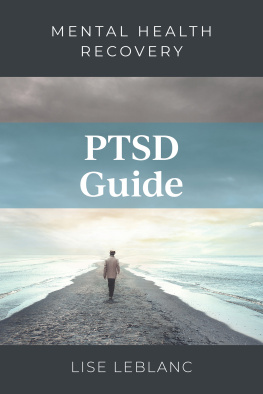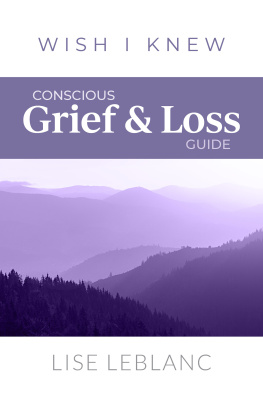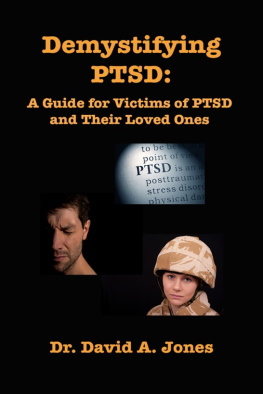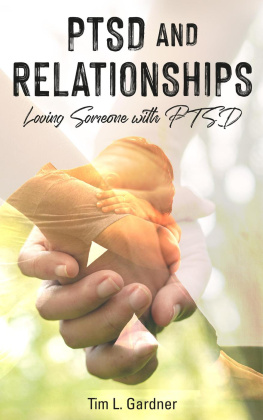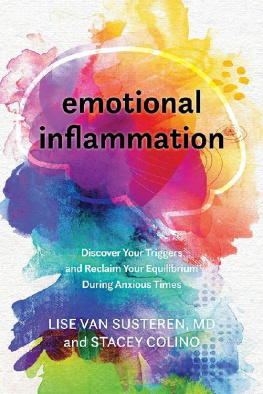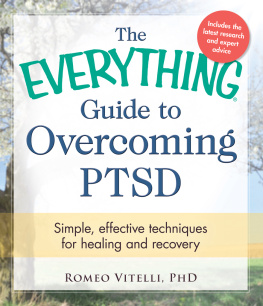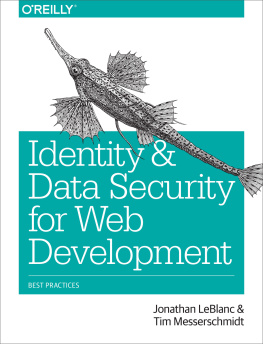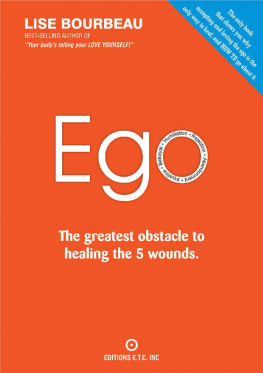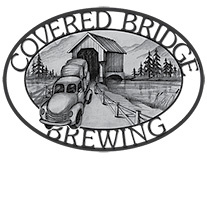Lise LeBlanc - PTSD Guide
Here you can read online Lise LeBlanc - PTSD Guide full text of the book (entire story) in english for free. Download pdf and epub, get meaning, cover and reviews about this ebook. year: 2020, publisher: Blue Moon Publishers, genre: Religion. Description of the work, (preface) as well as reviews are available. Best literature library LitArk.com created for fans of good reading and offers a wide selection of genres:
Romance novel
Science fiction
Adventure
Detective
Science
History
Home and family
Prose
Art
Politics
Computer
Non-fiction
Religion
Business
Children
Humor
Choose a favorite category and find really read worthwhile books. Enjoy immersion in the world of imagination, feel the emotions of the characters or learn something new for yourself, make an fascinating discovery.
- Book:PTSD Guide
- Author:
- Publisher:Blue Moon Publishers
- Genre:
- Year:2020
- Rating:4 / 5
- Favourites:Add to favourites
- Your mark:
- 80
- 1
- 2
- 3
- 4
- 5
PTSD Guide: summary, description and annotation
We offer to read an annotation, description, summary or preface (depends on what the author of the book "PTSD Guide" wrote himself). If you haven't found the necessary information about the book — write in the comments, we will try to find it.
PTSD Guide — read online for free the complete book (whole text) full work
Below is the text of the book, divided by pages. System saving the place of the last page read, allows you to conveniently read the book "PTSD Guide" online for free, without having to search again every time where you left off. Put a bookmark, and you can go to the page where you finished reading at any time.
Font size:
Interval:
Bookmark:

PTSD GUIDE
MENTAL HEALTH RECOVERY
PTSD GUIDE
MENTAL HEALTH RECOVERY
LISE LEBLANC

Mental Health Recovery: PTSD Guide
Editor: Allister Thompson
Book Designer: Jamie Arts
Published in Stratford, Canada, by Blue Moon Publishers.
Printed and bound in Canada.
ISBN: 978-1-989517-36-9
Mental Health Recovery: PTSD Guide. Copyright Lise Leblanc. All rights reserved. No part of this book may be reproduced or transmitted by any person or entity, in any form or by any means, electronic or mechanical, including photocopy, scanning, recording, or by any storage and retrieval system now known or to be invented without written permission from the publisher. Contact: Blue Moon Publishers, www.bluemoonpublishers.com. The format, design and layout used in this book are trademarks and/or trade dress of Blue Moon Publishers.
The views and opinions expressed in this book are those of the author, based on her personal experiences in life and business, and the book is intended to provide inspiration and valuable general guidance, however, readers must consider their own circumstances before accepting the opinions of the author and applying them in their own circumstances. The author makes no representation as to the suitability or validity of the content of this book to the personal circumstances of the individuals who will read the book and will not be liable for any errors, omissions, loss, damage or claims arising from the contents of this book. Where inspirational quotations have been used, the author has used all reasonable endeavours to ensure that the materials are not in breach of copyright and intellectual property laws.
Next Chapter books are available at special quantity discounts to corporations, professional associations, and other organizations. For details and discount information, please contact .
CONTENTS
OTHER BOOKS IN THE
MENTAL HEALTH RECOVERY SERIES:
PTSD COLLECTION
PTSD Guide
PTSD Guide Workbook
BOOKS IN THE WISH I KNEW SERIES:
GRIEF & LOSS COLLECTION
Conscious Grief & Loss Guide
Conscious Grief & Loss Guide Workbook
Gentle Quotes on Grief & Loss
Grief & Loss Guided Journal
CAREGIVING COLLECTION
Conscious Caregiving Guide
Conscious Caregiving Guide Workbook
Caregiving Insights
Gentle Quotes on Caregiving
Caregiving Guided Journal
ABOUT THE MENTAL HEALTH RECOVERY SERIES PTSD COLLECTION
The Mental Health Recovery series offers practical information and concrete strategies for people of all ages who are struggling with mental health issues. Arranged in brief sections, there are natural break points so you can take the time to process the information provided, reflect, practice, and instill these new strategies into your life before taking more in.
The PTSD Guide is a step-by-step, practical guide that will help you understand exactly what trauma is, how unprocessed trauma is affecting your nervous system and how to take action to heal yourself. You will learn effective ways to get relief from the confusing, debilitating, and very isolating symptoms of PTSD, as well as learn specific ways to retrain and soothe your traumatized nervous system.
The PTSD Guide Workbook is your essential workbook to accompany the PTSD Guide. Each chapter in the workbook corresponds to a chapter in the guide, including practical exercises, checklists, reflective questions, and more.
FOREWORD
As I read PTSD Guide Mental Health Series, skilfully crafted by my dear friend and colleague Lise Leblanc, I felt my life being graced by her counsel to be patient, present, gentle, and loving to myself as I pursue my work as a community-based psychiatrist supporting so many individuals who have been exposed to trauma. I was deeply touched by her invitation to instil hope in the hearts and minds of individuals I support. She suggests I invite them to reinvest energies initially invested in attempts to avoid, resist, and hide from dysregulated nervous systems following exposure to single or repeated incidents of trauma.
As I read this guide, I recalled the words of Confucius:
If there is righteousness in the heart
There will be beauty in the character
If there is beauty in the character
There is harmony in the home
If there is harmony in the home
There will be order in the nation
If there is order in the nation
There will be peace in the world
Lise offers comprehensive, practical guidance to retrain and heal our traumatized nervous systems on the road to reclaiming our life after trauma. We are advised to take our time to heal. We are offered break points, reflective questions, and practical exercises to optimize our understanding of the wisdom she has accrued over the past twenty years as she listened to her clients and healed from her own trauma. In this book, we are given clear strategies to restore integrity, beauty, harmony and peace within ourselves and within our relationships.
The neurobiological response to trauma makes much sense when she explains it in such a clear and concise manner. She offers a discussion of the importance of relationships, connection, and open communication in this healing journey, with a reminder that our brains are wired for connection, but trauma rewires them for protection (Ryan North). Connections between brain changes and symptoms become clear as Lise unites this understanding with recommendations for individualized recovery plans. She paves this road with personal stories and anecdotes. She consolidates our emerging understandings of the neuroscience of trauma with light humour. She advises how to create space for healthy discussion with loved ones, and the development of tools for self-advocacy. She reminds us that reaching out for help is a sign of strength in a world besieged by individual and systemic misunderstanding of mental illness. She emphasizes the benefits of self-forgiveness and self-love.
I was once very depressed, after being repeatedly vicariously traumatized. Lise was an angel in my support circle. She recorded my words for me when I was unable to see the light of recovery.
She now again blesses me and offers you the same gift, if you choose to accept it.
She has grown through her commitment to bearing witness to the suffering of others.
She has created safe places for her clients and their families to embrace their vulnerabilities as they retrain their brain and nervous system in the presence of compassionate professional support. Consider accepting this gift of knowledge, wisdom, and hope.
May you be blessed.
May you again be free to love yourself and others.
Dr. Bob King, MD, FRCP
INTRODUCTION
As a therapist and clinical supervisor for over twenty years, I have worked with many clients who developed posttraumatic stress disorder (PTSD) as a result of direct or indirect exposure to various types of trauma. Some involved a one-time traumatic event such as an accident, near-death experience, physical, or sexual assault, or natural disaster, while others developed PTSD because of repeated exposure to trauma (first responders, military personnel, healthcare professionals, crisis workers, dispatchers, victims of domestic violence or child abuse). Many of them were at a loss on what to do and how to cope with their trauma. You may feel this way too. You may even feel as though life is not worth living now that you are being tormented by PTSD. Dont despair. There is hope.
Next pageFont size:
Interval:
Bookmark:
Similar books «PTSD Guide»
Look at similar books to PTSD Guide. We have selected literature similar in name and meaning in the hope of providing readers with more options to find new, interesting, not yet read works.
Discussion, reviews of the book PTSD Guide and just readers' own opinions. Leave your comments, write what you think about the work, its meaning or the main characters. Specify what exactly you liked and what you didn't like, and why you think so.

